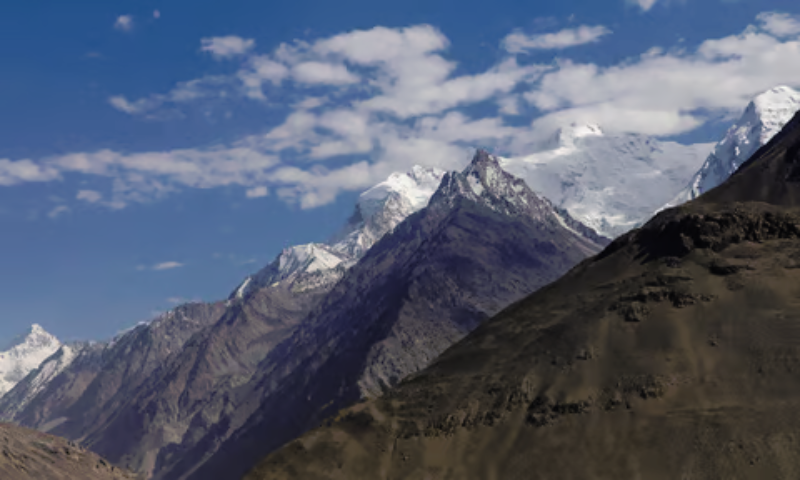KATMANDU: The Hindu Kush and Himalaya mountains are experiencing historic low levels of snowfall, raising fears of severe water shortages that could impact hundreds of millions of people in the region, a new report warned.
The report, issued by the Nepal-based International Centre for Integrated Mountain Development (ICIMOD), highlights an “extraordinary below normal snow year” with potential devastating consequences for large downstream population centers that depend on snowmelt runoff for water.
The annual Snow Update Report from ICIMOD urges water management officials to immediately implement drought management strategies and ensure preemptive emergency water supplies to mitigate the looming crisis.
“Snowmelt is the source of approximately 23% of the total water flow of 12 major river basins that originate high in the HKH (Hindu Kush Himalaya). But its contribution to water supply varies from river to river – representing 74% of river flow to the Amu Darya; 77% of the Helmand’s flow; and 40% of the Indus’ flow,” ICIMOD stated in a press release.
This year, snow levels are reported to be 20% below normal. The Helmand River in Afghanistan has seen the most dramatic fall at 31.8% below normal, followed by the Indus Basin at 23.3% below normal, marking the lowest level in 22 years.
“We’ve seen a pattern of decreasing amounts and persistence of snow across the Hindu Kush Himalaya, with 13 of the past 22 years registering lower than normal seasonal snow persistence,” said Sher Muhammad, ICIMOD’s cryosphere specialist and author of the report.
“This is a wake-up call for researchers, policymakers, and downstream communities: lower accumulation of snow and fluctuating levels of snow pose a very serious increased risk of water shortages, particularly this year,” Muhammad added.
Miriam Jackson, another expert from the center, emphasized the need for relevant agencies to take proactive measures. She called for updating water management plans to address potential drought conditions, especially in the early summer, and for notifying communities about the risks.
“G20 countries need to cut emissions faster than ever before to prevent even more changes that will prove disastrous to major population centers and industries that rely on snow-melt in the mountains,” Jackson said.
The ICIMOD report underscores the urgency for immediate action to address the alarming trends in snowfall and water supply in the region. The data indicate that sustained efforts to manage water resources and reduce emissions are critical to averting severe water shortages and ensuring the well-being of millions of people dependent on these vital water sources.























